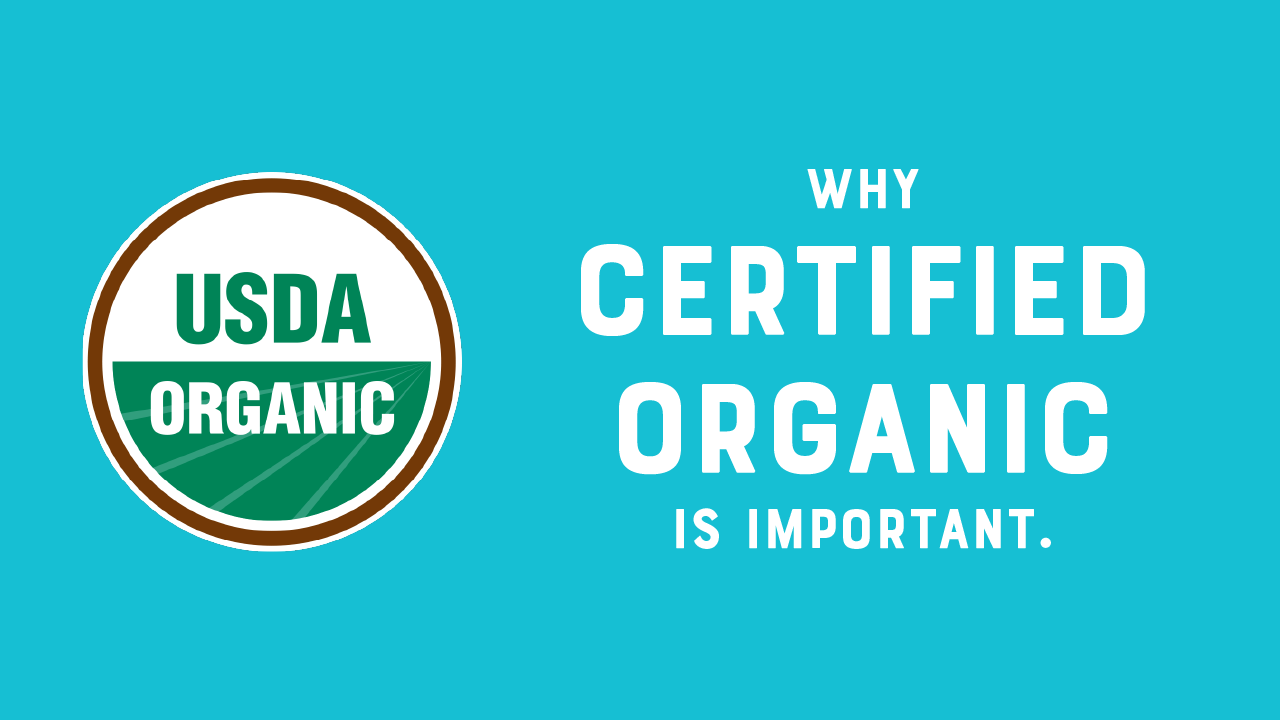
Why Certified Organic is Important, But Not Enough.
At Earth Wake, we’re passionate about providing you with dried fruit that’s not only delicious but also better for you and the planet. That’s why our dried fruit is Certified Organic, adhering to the USDA’s National Organic Program standards. But while Certified Organic is a crucial step toward more sustainable food production, we believe it’s just the beginning. Let’s dive into why Certified Organic is important—and why we go even further with regenerative farming practices.
What Does Certified Organic Really Mean?
Certified Organic isn’t just a label—it’s a promise that the food you’re eating has been grown and processed according to strict guidelines that protect both your health and the environment. At Earth Wake, our dried fruit meets the USDA Organic standards, which means:
- No synthetic chemicals or pesticides
- No GMOs (genetically modified organisms)
- No sewage sludge or irradiation
- The soil supporting the trees must be free of prohibited substances for at least three years
We undergo an annual organic inspection to ensure that we—and the farmers who grow the fresh fruit in every Earth Wake bag—remain in full compliance with these standards. So, when you see that USDA Organic seal, you can trust that our fruit has been grown without harmful chemicals or GMOs.
Certified Organic: A Good Start, But Not Enough.
While Certified Organic is a great standard, it’s not the whole picture. Unfortunately, the term “organic” in our opinion, has been greenwashed in recent years. Large companies may slap an organic label on their products without committing to truly sustainable, holistic farming practices. This is where we set ourselves apart.
At Earth Wake, we believe in radical transparency. To truly know your food, you need to know your farmer and understand the practices that go into growing it. We should all be shopping locally and getting to know the people making the nourishing foods that we’re putting into our bodies. And that’s why we don’t stop at Certified Organic—we go even further in our orchards by implementing regenerative organic farming practices that actively restore the land and support biodiversity.
Regenerative Farming: Going Beyond Organic.
While Certified Organic ensures we’re avoiding harmful chemicals and GMOs, regenerative farming takes things a step further. Regenerative practices focus on rebuilding and restoring the health of the soil, not just maintaining it. This includes planting cover crops, supporting biodiversity, and nurturing the land to create a thriving, resilient ecosystem.
The key difference? Organic farming is about sustainability—doing less harm. Regenerative farming is about improvement—actively making things better. Regenerative practices work with nature to rebuild and replenish the land, fostering healthier soils and ecosystems that can sustain themselves for years to come. That’s why we believe regenerative farming is the future of food, and why we’re committed to it at Earth Wake.
Organic vs. Non-GMO vs. Regenerative: What’s the Difference?
You might be wondering: What’s the difference between Certified Organic, Non-GMO Verified, and Regenerative Organic Certified farming? All three are important certifications, but they focus on different aspects of food production.
- Certified Organic: This certification covers growing and handling, including everything from soil health to the processing of the fruit. When you see the USDA Organic seal, it means the food was grown without synthetic chemicals, GMOs, or harmful practices. It means the processing and packaging of the food was also done meeting organic standards. It’s a holistic approach that prioritizes environmental sustainability and the health of the land.
- Non-GMO Verified: This certification specifically ensures that no genetically modified organisms are present in the product. While important, Non-GMO Verified doesn’t guarantee the broader eco-friendly practices that come with organic certification.
- Regenerative Organic Certified: This certification focuses on the farming and goes beyond simply avoiding harm. Regenerative practices actively restore the health of the soil and ecosystems, focusing on rebuilding and replenishing. Regenerative farming nurtures biodiversity, sequesters carbon, and ensures that the land can thrive for generations to come.
Here’s a quick breakdown to help clarify the difference:
Why We Go All In on Certified Organic and Regenerative Practices.
At Earth Wake, we believe in taking things a step further. That’s why we don’t just stop at Certified Organic. We’re fully committed to regenerative farming practices because we believe it’s not just about doing less harm, but about actively restoring and improving the land for future generations. By choosing Earth Wake, you’re supporting a farming system that’s both sustainable and restorative—a system that promotes healthier soils, stronger ecosystems, and better food for everyone.
Join Us in Building a Regenerative Future.
Together as producer and consumer we can be proud to be part of a movement that goes beyond Certified Organic to build a more sustainable, regenerative future. Thank you for choosing us, and for helping make the world a better place, one bite at a time!
And remember, we’re all in this journey together and as we know better, we will do better.
